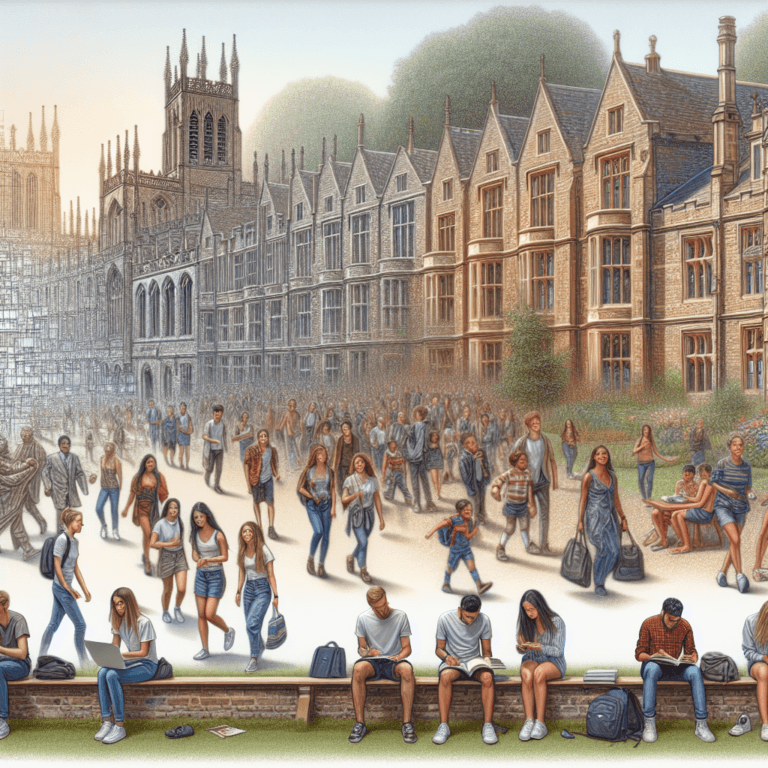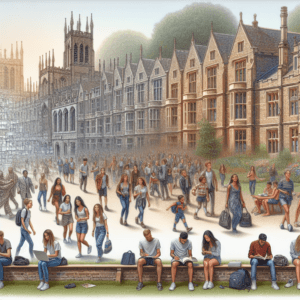The Evolution of Campus Life in UK Universities
Campus life in UK universities has undergone significant transformations over the past few decades, reflecting broader societal, technological, and cultural shifts. From the post-war expansion of higher education to the contemporary emphasis on inclusivity and well-being, the evolution of campus life provides insight into how students engage with their environment and each other.
Historical Context
The landscape of UK universities began to change dramatically in the aftermath of World War II. The 1960s and 1970s saw a substantial increase in student populations, fueled by government policies aimed at expanding access to higher education. This period marked the rise of the "new universities," which were established to accommodate the growing demand. Campus life during this era was characterized by a strong sense of community. Students often lived on campus, fostering close-knit relationships within their residential halls.
Social Movements and Cultural Shifts
The student movements of the 1960s and 1970s had a profound impact on campus life. Issues such as civil rights, anti-war protests, and women’s rights mobilized student populations, leading to the establishment of various student unions and organizations. These movements not only encouraged political activism but also promoted cultural diversity and inclusivity. Increasingly, universities began to recognize the importance of supporting students from diverse backgrounds, leading to the implementation of various programs and services aimed at enhancing the student experience.
Technological Advancements
The advent of the internet in the 1990s introduced a new dimension to campus life. Digital communication transformed how students interacted, allowing for the formation of online communities that transcended geographical boundaries. Social media further facilitated connections among students, enabling them to share experiences, collaborate on projects, and organize events. The digital age has also led to the incorporation of technology in academic settings, with a significant shift towards online learning and digital resources.
Emphasis on Well-Being and Mental Health
In recent years, there has been a growing recognition of the importance of mental health and well-being in higher education. Universities have implemented various support services, ranging from counseling to wellness initiatives, aimed at creating a healthier campus environment. Moreover, institutions are increasingly focused on fostering a sense of belonging among students. This emphasis on well-being has led to the creation of more inclusive spaces, such as prayer rooms, meditation areas, and quiet zones that cater to the diverse needs of the student body.
Sustainability and Environmental Awareness
Environmental consciousness has emerged as a significant aspect of campus life in the 21st century. UK universities have taken strides towards sustainability, from reducing carbon footprints to promoting environmentally friendly practices. Students are actively involved in initiatives focused on recycling, reducing food waste, and promoting sustainable transportation options. This commitment to sustainability is reflected not only in campus policies but also in the way students engage with environmental issues, often leading to collaborative projects aimed at fostering eco-conscious communities.
Future Trends
As UK universities continue to evolve, several trends are likely to shape the future of campus life. The rise of hybrid learning models, combining in-person and online education, suggests a rethinking of traditional classroom dynamics. Additionally, as campuses strive to become more inclusive, the focus will likely remain on addressing the diverse needs of students, including those from marginalized backgrounds.
In summary, the evolution of campus life in UK universities is a testament to the changing landscape of higher education. From historical roots in community building to contemporary concerns about well-being and sustainability, the trajectory of campus life reflects broader societal changes and the ongoing commitment to creating enriched educational experiences. The journey ahead promises continued growth, innovation, and adaptation to the ever-evolving needs of students.







